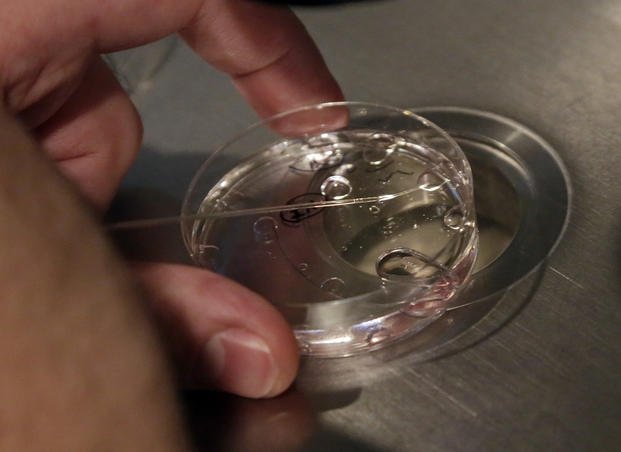Senate and House Democrats are trying again to expand fertility treatments for active-duty personnel and veterans whose military-related disabilities render them unable to conceive without help.
Sen. Patty Murray and Rep. Rick Larsen, both Democrats from Washington state, along with Sen. Tammy Duckworth, D-Ill., plan to introduce bills in their chambers Thursday that would cover in vitro fertilization, cryopreservation of eggs and sperm, and other health treatments for military family and veteran beneficiaries.
The Veteran Families Health Services Act would let service members freeze their gametes before deployment to a hazardous assignment and after injury or illness; would expand eligibility for assisted reproductive technology treatments to include military and veterans spouses, partners and surrogates; and expand adoption assistance at the Department of Veterans Affairs, among other things.
Read Next: VA Electronic Health Record Rollout Unlikely to Resume for a Year After Being Derailed by Problems
The announcement marks the second time the trio has introduced the legislation. In 2021, the Senate Veterans Affairs Committee debated the bill during a hearing, but it never made it out of the committee.
Duckworth, a double amputee and mother of two who used in vitro fertilization to become pregnant, said the legislation would help modernize the military and veterans health care systems.
"We must do everything we can to make sure our veterans receive the care and benefits they have earned, and that includes helping them fulfill their dreams of having a family," Duckworth said in a statement.
The proposed legislation comes as Congress wrestles to pass the fiscal 2024 National Defense Authorization Act and a defense funding bill. The House and Senate versions of the NDAA, which have yet to be reconciled, both address fertility services for active-duty service members and dependents.
The Senate bill would include fertility testing and artificial insemination in the standard military health benefit, but does not include in vitro fertilization.
The House's version of the defense bill also contains provisions pertaining to fertility services, although it stops short of expanding these benefits to service members.
Instead, it asks the Defense Department to study the issue and report back to Congress. An amendment sponsored by Rep. Chrissy Houlahan, D-Pa., would require the DoD to produce a report on its policies regarding the cryopreservation of troops' sperm and eggs as a tool for family planning and a safeguard against injury.
Another amendment from Rep. Jim Banks, R-Ind., would require the DoD to provide a report on the feasibility of providing baseline fertility testing services for Tricare beneficiaries.
Murray said she reintroduced the veterans family legislation because "it's obvious we should be doing everything we can to provide support and the options" military and veteran families need to build families.
"Service members and veterans have sacrificed so much for our country -- but they shouldn't have to sacrifice their ability to start a family," Murray said in a statement
The proposed legislation has the support of RESOLVE: The National Infertility Association, the American Society for Reproductive Medicine, and Disabled American Veterans.
In their release, the lawmakers did not provide an estimated cost of the legislation. A 2022 report by the American Society for Reproductive Medicine put the cost of expanding service members' access to infertility treatments at roughly $1.6 billion over the next 10 years.
A 2021 survey of active-duty personnel and spouses by Blue Star Families found that 64% of responding service members reported having challenges starting their families. More than four in 10 active-duty families said the military made it hard to plan for their desired number of children or space their births.
The difficulties were even more significant among female service members, who reported family building challenges at more than double the rate of their male counterparts, 57% versus 28%.
Previous legislative efforts to expand fertility services, including IVF, to military personnel and veterans have been opposed by conservatives who oppose the creation of excess embryos that would need to be destroyed if unused.
Murray was instrumental in pushing through legislation in 2016 that expanded fertility treatments, including IVF, for severely injured veterans.
"Congress should take the long-overdue step of permanently overturning outdated limitations on IVF to give service members and veterans the opportunity to start a family," Larsen said in a statement.
– Patricia Kime can be reached at Patricia.Kime@Military.com. Follow her on Twitter @patriciakime
Related: Nonprofits Are Filling a Void of Fertility Help for Service Members, But Hope Congress Steps Up













